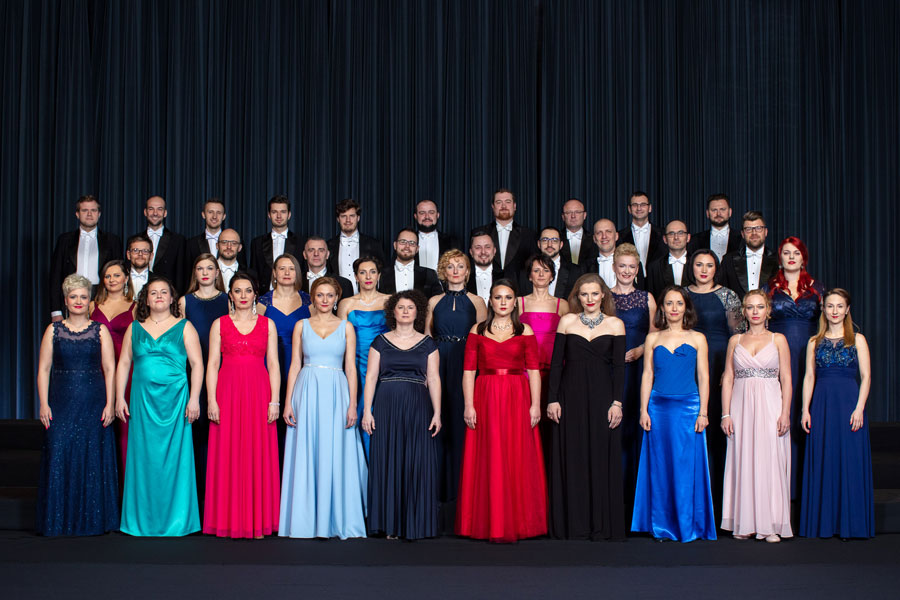Jacek Kaspszyk is one of the most talented Polish conductors of our time, and each of his performances arouses great interest in the audience. During the concert on the occasion of Independence Day at the National Forum of Music, the artist will conduct the NFM Wrocław Philharmonic and the NFM Choir in pieces by Roxanna Panufnik, Krzysztof Penderecki and Karol Szymanowski.
The Faithful Journey. A Mass for Poland is a monumental composition written in 2017–2018, with which Roxanna Panufnik celebrated the centenary of Poland regaining independence. Her intention was to write a work in which she could highlight the bond between her and her country of origin. For this purpose she used, in addition to the traditional order of the mass, works by Polish poets, such as Maria Pawlikowska-Jasnorzewska, Bolesław Leśmian, Zbigniew Herbert, and Wisława Szymborska. There are also references to Polish folk music.
Panufnik’s mass will be followed by the Chaconne from Krzysztof Penderecki’s A Polish Requiem. The full title of this emotional, elegiac and contemplative work is Chaconne per archi in memoria del Giovanni Paolo II, which reveals the genesis of the work written in 2005 in reaction to the death of John Paul II. A Polish Requiem, written over the course of twenty-six years, is one of Penderecki’s most important and elaborate compositions. The artist started working on it in an exceptionally difficult time, during the martial law period. It was supposed to be music “to cheer up hearts”, but the piece that came from Penderecki’s pen definitely goes beyond the scope of an occasional composition.
The concert will end with the performance of Karol Szymanowski’s Stabat Mater. For many years, the artist intended to write a work that he tentatively called the Peasant Requiem, but he changed his mind when he came across the Polish translation of the Latin Stabat Mater sequence in the Polish translation of Józef Jankowski. The resulting composition was raw, calm, ascetic, focused, and at the same time delicate and tender. The simplicity of the melody, rhythm and harmony made the message contained in the words about the mother’s pain after losing her child even more pronounced. Szymanowski was fascinated at that time by Polish music of the Renaissance, which influenced the scales used by the author and the sound of this unique work.

